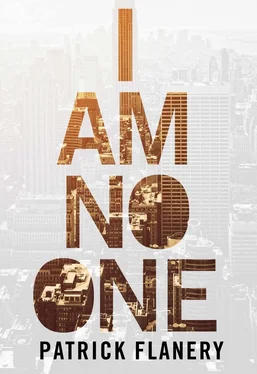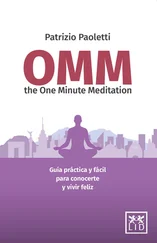‘Ours? My dear Jeremy, for gentlemen like us, such allegiances are pragmatic and fluid. You have taken dual citizenship just as I have taken dual citizenship. Which government I work for is a matter of context, moment, and intent.’
‘And discretion.’
‘Always,’ he smiled, pouring me an indifferent whisky from the SCR drinks tray.
‘How is Saif?’
There was a hesitation I had never observed before in Stephen, as though he was weighing how much he could tell me, or as if the question of Saif was the most serious question of all.
‘I’m afraid I don’t know. I can’t see him anymore. Probably never again. He’s no longer in Egypt. I believe he may be in Syria.’ His mouth cracked into a marionette’s smile before clapping shut. ‘How is the sister?’
‘She’s making good progress. I’m happy with her work. I wouldn’t have imagined when you told me five years ago — or six, whatever it was — to be sure she was admitted, that she would be as constant and consistent as she has turned out to be.’
Stephen blinked, his eyes dead.
‘I don’t know what you’re talking about.’
I was so bewildered by his response that for a moment I did not know what to say. I looked hard at him, trying to see if he was joking, or playing a game of some sort, but he continued to stare in a way that offered nothing in reply.
‘You told me one night, at your place, after getting me very drunk, that I had little choice but to see to it that Fadia was offered a place. You threatened me.’
Stephen sipped his drink and I understood, as moments turned into minutes, that he would admit nothing.
‘You should be careful of her,’ he said at last. ‘It is not a family—’
And then he stopped himself, as if he had thought better of whatever he might have been intending to say.
‘It’s not a family that what?’
‘Just don’t,’ he said, ‘if you have any sense.’
‘I’m sorry, Stephen, but I don’t know what you mean.’
‘One can see you find her attractive. I am telling you it would be foolish, not only because she is your student. There are other reasons to keep it professional. Think of this as the warning of a friend.’
Perhaps I shook my head or thanked him, or perhaps he merely stood and left the Senior Common Room and we said nothing more about it, or perhaps I left first, offended that Stephen should presume to offer advice about the intersection of my private and professional lives, and perhaps I left the College and walked down Turl Street to High Street and caught a taxi back to Divinity Road where I saw Fadia’s bedroom light burning and because I had her number in my phone I sent her a text message asking if she was okay and if she might, for a change of pace, despite it being very late, care to come across the street for a nightcap. In any case, that was what I did, whether it was that night or another, in the spring of last year, and the drink we had in the dining room at the back of my house, looking out on the garden at night, was, without question, the beginning of the next phase.
Looking out the window of my house in Rhinebeck, staring at the light of my neighbors’ house where Michael Ramsey had come to spend the weekend, innocently or not, the lights suddenly went out and I was left standing alone in the dark, gazing out at the moonlight and starlight and the ambient light of the distant town filtering through the trees. I felt, not for the first time in the last decade, a sense of such wrenching loneliness that, under other circumstances, I might once again have sent a message asking a relative stranger to join me for a drink, except that Michael Ramsey was not Fadia. I was not interested in becoming his friend, much less his lover. I wanted, if anything, to open a greater distance between us, and yet I suspected that, given a further hour alone with him, I might get answers to the questions raised by the events of the previous week.
Standing there in the dark it occurred to me that I had not yet found my misplaced phone, and out of a desire to sleep without such a small detail niggling at my unconscious, I began searching the house, turning on all the lights, groping through drawers and the pockets of clothes, checking everywhere logical. There was no sign of it and I turned at last to the kitchen, rummaging in cupboards and pantry shelves, until there was nowhere left to look but the refrigerator, and there I found it, inside, sitting squarely on the top shelf, next to the milk. I had no recollection of putting it there, and tried to think whether it was possible I had given Michael Ramsey opportunity sufficient to hide it in this way. I knew I had turned my back on him at least once, possibly twice. I was moved to phone him, then realized I did not have his number, but as I touched the central navigation button at the top of the phone’s keypad, the screen came back to life, and there, in a message composition field, were two words, written, I was certain, by Ramsey himself. My hands were shaking as I set the phone down on the kitchen table. The screen went dark and then I touched the navigation button to light it up again. The two words, black on a white field, were written, if such a quality is possible for text of this kind, with what looked like insouciance, or perhaps it was instead a kind of rushed telegraphy, no time to write more than he had, because I had been about to turn around from whatever I was doing when he snatched my phone away. I could imagine how the scenario must have unfolded behind my back, Ramsey hurriedly thumbing letters into the device.
I looked at the screen again.
‘Phones listen,’ it said.
There was no snow the following morning, but the trees were coated in ice and frost had formed on the windows, refracting the light. Michael Ramsey would be stirring himself while I was sipping my coffee and thinking how, even though the temperature had never been so low during all my years in Oxford, I had been colder there than anywhere else, shivering in those drafty houses with single-pane glass in the windows and inadequate insulation, standing on a train platform at Oxford or Didcot, even in London’s great Victorian stations, like St. Pancras and Paddington, open to the elements at one end; though it would make sense to raise a wall of glass to protect the waiting areas, no such thought seems ever to have occurred to anyone, even today when the winters in Britain are becoming more and more unpredictable, icy wind punching off the North Atlantic, in some years dumping snow and crippling a country that still imagines itself temperate. Such discomforts alone were enough to make me think of returning to America, to a house like the one I have bought in Rhinebeck.
That cold November morning just weeks ago I was content, in other words, to be back in New York in my insulated home with its double-glazed windows and forced-air heating flowing through the vents. I have been planning to install a solar array, following the example of neighbors in the area, and to invest in various other technologies that would make the house not only warmer but more efficient and sustainable. Now those plans seem, at the very least, uncertain. How long will my house be my own? In the absence of answers, I can but hope that whatever may happen, however compromised my liberty, I will not be stripped of my property.
During the years in Oxford, even when I owned my house on Divinity Road, even after, halfway through my time there, I had acquired dual citizenship, I felt a near constant sense of insecurity, a premonition of the ground beneath me suddenly giving way or of finding myself, however innocently, on the wrong end of a system of laws that seemed designed to catch one out in wholly unpredictable ways. Sometimes I imagined my life past retirement in a community where I had friends but no one sufficiently close that I would feel I might phone him or her in the middle of the night if I needed rescue. When I returned to Britain after being away for any period, I often said to myself, ‘I could disappear tomorrow and no one would really care.’ I felt unanchored, drifting and ignored, or at least uncared for by the people around me. There seemed little neighborliness in Britain, at least not of a kind I could recognize, not in cities like Oxford or London. It may be different in Scotland and the north of England, but in Oxford people keep to themselves, and my sense of social isolation was compounded by feeling that the longer I spent there the more powerfully I missed Meredith, the more I wanted to be back in the ambit of my mother’s life and the lives of my extended family, the aunts and uncles who were in their eighties and nineties, the cousins I had not seen for more than a decade.
Читать дальше












